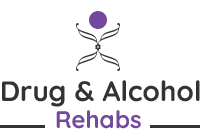Drug detoxification is the first active step a person can take that will point them towards ending their addiction to substances. For persons who are struggling with a substance use disorder (SUD), also known as addiction, deciding to stop using drugs to feel better is very difficult. Drug addiction holds people captive mentally, emotionally, and physically. For these people to fathom even one day without getting high and numbing how they feel, they will require certain reassurances.
Typically, the most significant concern a person will have about going to detox is if they will be medicated. A quality drug detox center will provide safe and effective medication that minimizes their specific addiction withdrawal symptoms, and medications to help them rest and sleep. A comfortable and supportive environment is essential to the detox and recovery process. Persons who are addicted to drugs have relied on substances to change how they feel so they can be comfortable. Detoxification should be completed in a calm and relaxing environment that provides medical care from medical doctors and others who specialize in addiction recovery.
 The 5 Step Checklist for Drug Detox
The 5 Step Checklist for Drug Detox
Following our 5-item checklist on how to find a drug detox will help you or a loved one understand what must be provided at a drug detox center for successful long term recovery.
- Drug-Specific Medical Detox Services
Planning on where to go for drug detoxification needs to include a center that offers specific drug detox methods and medications. Sending a person to a drug detox that does not specify that they provide detox for certain addictions is unwise. For example, a heroin addict will require specific medications that reverse opiate withdrawal symptoms; along with targeted medical care, and select counseling and therapy criteria to help them successfully recover. An alcoholic will need a different set of protocols for them to best recover. Likewise, other addictions such as cocaine, methamphetamine, benzodiazepines, and other addictive substances each call for specialized medications, medical evaluation, and monitoring as well as targeted counseling and therapy.
The centers that we recommend offer drug-specific detox programs. They provide medically supervised detox services for the following addictions:
- Heroin Addiction
- Prescription Pain-killer Addiction
- Benzodiazepine Addiction
- Cocaine Addiction
- Methamphetamine Addiction
- Alcohol Addiction
- Club- drug Addiction (Ecstasy, Ketamine, GHB, etc.)
- Marijuana
- Medical Staff who Specialize in Drug Detoxification
Medical doctors must staff a drug detox center along with psychiatrists or psychologists and licensed substance abuse counselors. These qualifications will ensure that a person receives expert medical care with around the clock observation. Substance abuse counselors and addiction specialists are a necessary component of the drug detox process. Once a person begins to feel physically stronger, they will need support. Drug counselors are present to encourage the clients as well as preventing a person from leaving early so they can get high.
Urges to get high are part detoxification. Counselors need to be there to renegotiate with clients to stay longer, even if it means only committing to another 24 hours. In most cases, when a person wants to leave before they have completed detox, they can be convinced by a counselor or understanding staff member not to leave. There are countless stories of addicts who decided to remain longer at detox, and this how they ended their addiction for good. The presence of drug addiction specialists also allows clients to begin to open up about their addiction and what caused them to become an addict. A detox center must be capable of providing one on one counseling and lighthearted group counseling and activities. When a person is in detox, they are sensitive and require emotional validation and empathy, which these professionals can meet.
- Relaxing and Professional Environment
Drug addiction completely wipes a person out. These people are physically ill, stressed, hypersensitive, and needy. The best environment for a person who is experiencing drug withdrawal symptoms is to be allowed to sleep and rest. They require peace with minimal disturbances. They also need to feel cared for and safe. A relaxing environment must provide an atmosphere that encourages rest, offers healthy meals, and access to snacks or beverages at all times. A detox center needs to engage clients to participate -when they are ready- in stress-free activities that are easy to do and promote positive emotional and mental wellbeing.
A quality drug detox center will place a priority on relaxation while providing medical care and counseling. The environment should also allow smoking in designated outdoor areas, scheduled phone calls and or visits, access to the outdoors, and free-time activities such as television, movies, or games.
- Counseling and Recovery-Focused Groups and Activities
Drug detox is the first step a person can make towards attaining substantial recovery from their addiction. Detox is the ideal time to submerge a newly recovering addict with all things recovery based. Drug addiction counselors and specialists are required to meet one on one with their clients in detox regularly. The goal of detox is not just to get someone off of a substance. It is far more meaningful. Drug detoxification intends to get someone clear-minded enough so that they can be reached emotionally and mentally. A professional substance abuse counselor is trained on how to approach addicts to inspire them to remain drug and alcohol-free.
Other recovery-focused groups or activities can include art therapy with an assignment on to draw or paint what your life would look like without drug use. Another recovery-focused group activity might encourage building self-esteem or designing an ideal lifestyle. The centers we connect clients to for detox provide individualized counseling and group counseling and activities while in detox.
- Individualized Treatment Planning
Once a person has completed their detox and is cleared medically, they will need a solid plan of how they will remain drug-free. Since addiction cannot be cured or solved by the addict, the most crucial part of a detox exit plan will include a treatment plan. An individualized treatment plan is superior to an average treatment plan in that it is tailored to meet the individual’s needs.
Addiction stems from multiple influencers, and each person will have their own story on why they use drugs. An individualized treatment plan will address specific challenges with detailed and targeted treatment methods and therapy for them. One person may need trauma therapy for physical abuse, and holistic therapy to help them reduce their anxiety. Another person may need anger management and cognitive-behavioral therapy for their addiction to cocaine.
Individualized treatment planning begins with drug detox. When a person gets clean and sober, their mind and emotions are open to receiving help. If a person does not get unique treatment for their issues, they will lose interest and have trouble remaining clean and sober. The drug detox centers we recommend will provide an individual treatment plan that is tailored to meet all the unique needs of the person and address influencers that caused this individual to become addicted to drugs.

 The 5 Step Checklist for Drug Detox
The 5 Step Checklist for Drug Detox